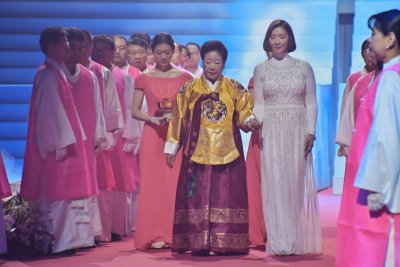
July 18 (UPI) — South Korean prosecutors on Thursday executed coordinated raids on more than 10 locations connected to the Unification Church, including its Seoul headquarters in Cheongpa-dong, the Cheonjeonggung Palace in Cheongpyeong, a foundation office in Mapo, and the private residence of former church executive Yoon Young-ho.
The large-scale operation marks a significant escalation in a widening political influence scandal involving the church and top government figures.
During the raid at Cheonjeonggung, Lee Cheong-woo — the church’s director of central administration and its third-ranking official — allegedly mobilized approximately 600 young members to physically obstruct investigators. According to JTBC, Lee issued verbal threats and threatened to ram his vehicle into media reporters in an attempt to intimidate and disrupt coverage of the raid.
JTBC also reported that investigators discovered large bundles of cash and high-end luxury items inside a hidden safe, possibly intended for use in lobbying operations.
Prosecutors allege that the Unification Church sought to secure political favors in exchange for luxury goods and financial support, including lobbying for public development assistance (ODA) projects along Cambodia’s Mekong River and South Korea’s bid to host the United Nations’ Fifth Secretariat Office.
The church has denied all allegations, characterizing the investigation as a case of “individual misconduct” by Young-ho Yoon. However, the hierarchical nature of the Unification Church makes it unlikely that Yoon acted alone. Many observers expect the seized materials to provide more definitive evidence implicating higher-ranking officials.
At the center of growing scrutiny is Jung Wonju, Executive Secretary to Chairwoman Hak-ja Han and Vice President of Cheon Mu Won, the Unification Church’s highest administrative body. Though Han remains the official spiritual leader, Jung is widely regarded as the church’s de facto second-in-command and is believed to have overseen high-level political outreach and internal consolidation of power.
Jung began her rise within the organization as Han’s personal hairdresser but gradually leveraged her close relationship with the chairwoman to sideline rival figures and accumulate influence behind the scenes. In recent years, she is believed to have effectively replaced senior leadership, quietly assuming control over key decision-making processes.
She left South Korea for the United States in early June — more than a month before the July 18 raids — reportedly citing her husband’s illness. Despite being subject to a de facto travel restriction, she has not returned since. Her prolonged absence is widely viewed as compelling circumstantial evidence of her central role in the alleged scheme.
Further intensifying public scrutiny, Jung’s family ties have raised concerns over media influence and nepotism. Her husband’s younger brother, Tom McDevitt, currently serves as chairman of The Washington Times, a U.S.-based newspaper with long-standing ties to the Unification Church. Additionally, Jung’s younger brother, Hee-taek Jung, is CEO of Segye Ilbo, a major South Korean daily also affiliated with the church.
Critics argue that these familial connections have enabled Jung to exert behind-the-scenes influence over both domestic and international media. Just a day before the raids, The Washington Times published a glowing profile of Chairwoman Hak-ja Han, prompting allegations that the outlet — though publicly operating as an independent journalistic institution — was being privately leveraged to defend and legitimize church leadership amid mounting legal pressure.
As the investigation widens, calls are mounting for Jung Wonju to return to South Korea and face legal proceedings. Many within the broader religious community argue that assuming responsibility is not only a legal duty but a spiritual obligation.
The special prosecutor’s office has indicated that additional indictments and arrests are likely as evidence is reviewed. International cooperation may also be sought if Jung continues to remain overseas.